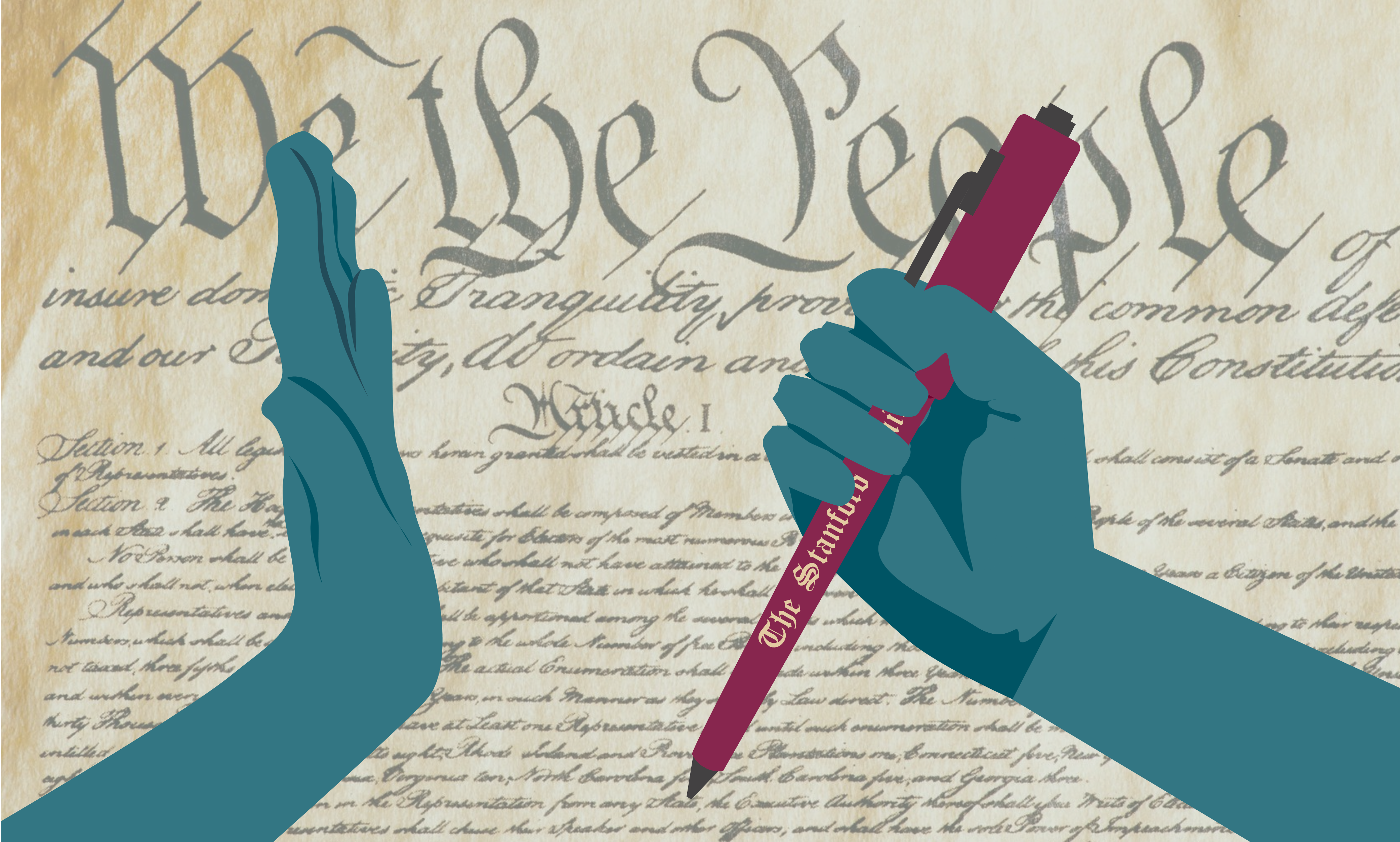This article is a dissent to the Editorial Board’s article “Ethical journalism for a new age.” Read the article here.
Yesterday, the Editorial Board suggested abandoning the mission of The Daily, “to serve the Stanford community with relevant, unbiased journalism.” Instead, it has opened the door to self-censorship, proposing that college publications across the country consider forging new guidelines based on the partisan opinions of activist groups, even if, as the Editorial Board members have argued, it negatively impacts the “First Amendment” and “the standard of objectivity.” Indeed, The Daily has already adopted this practice, refusing in some cases to publish newsworthy, identifiable photographs of activists protesting publicly on campus.
In doing so, it joins students across the country who are choosing to abandon objectivity in deference to activists, like the editors of The Daily Northwestern, who capitulated to protesters, claiming that “nothing is more important than ensuring that our fellow students feel safe;” the editorial chair of The Harvard Crimson, who condemned her own newspaper for not “reporting with sensitivity;” and the editor-in-chief of The Wesleyan Argus, who argued that “Coming close to objectivity can be enough.”
This disturbing trend is, in many cases, forced by student activists. Increasingly, they are demanding that their college newspapers abandon objectivity, claiming that “By taking a neutral stance, journalists and media are being complacent,” that they will not “trust” their college newspaper “until we see a willingness to engage journalism in a much more … social justice-oriented way,” or that, “when a newspaper says they are trying to be objective, that means they are upholding standards that were set against people who have been oppressed.” If they don’t, these activists are refusing to speak with them, demanding that they be disbanded or defunding them through student government.
In this environment, college publications are under threat from two sides: student activists who believe that newspapers should represent their views as facts and, for those that are University-funded, administrators who view student reporting and investigations as a liability to their interests. But The Daily is facing neither threat. Instead, the threat is from within.
Almost half a century ago, The Daily declared itself independent from the University in order to defend the newspaper’s objectivity and protect the First Amendment rights of its writers. Now, the inheritors of that legacy are proposing the abandonment of both under the guise of earning the “trust” of “the community.” And yet, by suggesting, via The Harvard Crimson and The Daily Northwestern examples, that there is legitimacy in activists’ calls for student publications not to report the whole story, to not seek comment from all sides of an issue and to not publish photographs, it will have the opposite effect, eroding that trust; all while undermining the very purpose of public demonstrations: to be seen and to be heard.
Worse, the Editorial Board has chosen to do this in one of the most pivotal moments for the free press in our nation’s history; a moment when the First Amendment, one of the pillars of our democracy, is being attacked by the president of the United States and when journalists are being beaten in the streets and illegally jailed for upholding their mandate to report the news honestly, impartially and fully.
The Editorial Board has proposed abandoning that mandate, pretending that doing so is key to “deliver[ing] free, unbiased information,” key to being “accountable to its own power,” or that somehow what it means to be a good journalist has changed. As the lone dissenting member on this issue, I call on my fellow board members, The Daily staff and both the current editor-in-chief and the editor-in-chief-elect to affirm a commitment to the First Amendment as the backbone of our newspaper and the standard of objectivity as the source of our readers’ trust.
Contact Willoughby J. Winograd at willjw ‘at’ stanford.edu.
The Daily is committed to publishing a diversity of op-eds and letters to the editor. We’d love to hear your thoughts. Email letters to the editor to eic ‘at’ stanforddaily.com and op-ed submissions to opinions ‘at’ stanforddaily.com.
